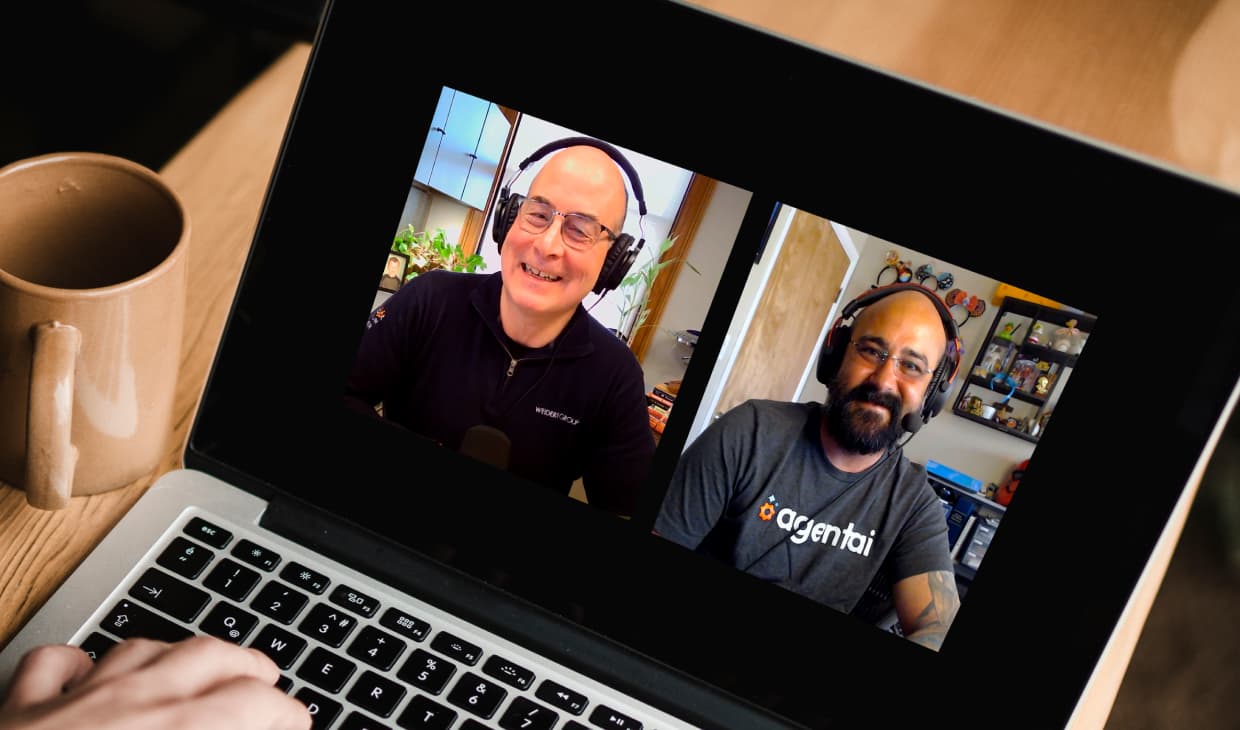FAQ: How to Boost Marketing Productivity with HubSpot AI & More
Written by
At our March Appleton HubSpot User Group (HUG) event, we asked participants to share their most pressing questions about artificial intelligence (AI) tools in HubSpot — along with some of the bigger LLMs like Claude, ChatGPT, and Gemini.
Here’s why: The AI landscape is changing fast. New tools and capabilities are emerging almost daily. It’s an exciting time for marketers, but it can also be overwhelming.
Many HubSpot users are eager to harness the power of AI to streamline their workflows and enhance their results, but they’re not quite sure where to start or how to navigate the multitude of AI tools out there.
That’s where our quarterly HUG event comes in (join the user group here). Of course, we knew we needed to do live demos, but we also wanted to hear directly from HubSpot users about where you could really use AI’s assistance. We also wanted to help our HUG attendees understand how AI can support their specific needs and overcome some common challenges marketers and salespeople face.
Here’s the other why:
Marketers are adopting AI quickly, but that doesn’t mean turning a large language model (LLM) loose on your content without a discerning eye and ear — not to mention the critical thinking and fact-checking needed before publishing anything AI-generated.
So, whether you’re an AI enthusiast or a skeptic, a HubSpot power user or a newcomer, you’re sure to find an area where you can learn more about, and achieve more with, AI. These top seven questions provide some helpful insights into key tasks and challenges HubSpot users want to address with AI tools:
- Automation and efficiency
- Content creation
- Email marketing
- Reporting and analytics
- Social media
- Lead generation and prospecting
- Research and data analysis
What kinds of tasks can AI help automate to increase efficiency?
AI-powered tools like HubSpot’s Chatspot can certainly help automate repetitive tasks and boost efficiency. It’s now possible to simply ask a chatbot specific questions about your CRM and marketing data — from customers to KPIs — and get answers served up in seconds. That allows marketers to focus time and resources on more strategic initiatives or complex challenges.

And as AI continues to advance, expect even more automation opportunities ahead. For now, it’s key to have realistic expectations. Review outputs carefully, and be prepared to adapt processes as AI tools continue to develop. Don't expect AI to solve all your problems overnight, but do look for opportunities to leverage it strategically.
How much can AI help with content creation?
AI experts recommend thinking about AI tools as something like an eager human assistant (while never forgetting it’s not a person). So, how much AI can help depends on how well you learn to use it. For content creation, AI can help with:
- Overcoming writer’s block: AI tools can provide inspiration and structural ideas, and jumpstart the writing process
- Streamlining workflows: Using AI to lay out all the bits and pieces, like meta descriptions and title tags, can free up time for higher-level strategy and editing
- Repurposing content: AI can make it quicker and easier to adapt existing content into different formats for various channels
Just remember that AI-generated content requires human editing and refinement to ensure it aligns with your brand voice and messaging — and to make sure it’s accurate, truthful, and helpful to your audience. Think of AI as a helpful starting point, not a replacement for human creativity, critical thinking, and judgment.
How can I use AI in email marketing?
In the HUG, our Director of Revenue Operations, Rick Kranz showcased three tools that can help with email campaigns: HubSpot’s email add-on, ChatSpot, and ChatGPT-4. All three can help generate subject lines and email body copy, streamlining your ability to personalize messaging and optimize your sends.

But as Rick’s comparison demonstrated, results can vary. While ChatGPT 4 provided the most sophisticated output, it’s a paid tool. HubSpot ChatSpot, while free, may not always generate perfect results. The key is to use AI as a starting point and always review, refine, and tailor the generated content to your specific needs and audience.
What can AI do for reporting and analytics?
AI has the potential to revolutionize reporting and analytics — just keep in mind that it’s a work in progress, and LLMs specialize in language and their math performance can vary.
HubSpot's AI-powered reporting features are currently in beta and limited to single-object reports. As our HubSpot specialist, Matt Popham showed, these tools can save time and provide valuable insights, but they may not be able to handle complex, multi-dimensional reporting needs just yet.
Be prepared to work with the limitations and provide feedback, to help influence the ongoing development of these capabilities for the better.
Can AI help generate social media content and ideas?
This might be one of your best options for a quick-win AI use case. The tools can draft social media lead-ins, complete with emoji, recommended hashtags, and images.

As with any AI-generated content, it’s a must to edit, customize, review, and proof the output to ensure it resonates with your unique audience and aligns with your brand voice.
AI’s speed can help you generate a steady stream of posts for a more consistent social media presence, even when marketing’s swamped. But as always, AI provides a solid starting point — it's up to you to add humanity and accountability for your content, and ensure your social media presence is authentic and engaging.
How can AI support lead generation and prospecting?
While the HUG didn’t cover lead gen and business development specifically, AI has lots of potential here, too. Developing more robust buyer personas can help you get a clearer understanding of your customers’ pain points and challenges. Personalizing outreach can improve conversions and engagement throughout the lead nurturing process.
As with any new tool or strategy, be sure to test, measure, and iterate to find what works best for your unique situation.
Can AI make research and data analysis faster and easier?
AI can certainly help streamline research and data analysis, but it’s not a magic bullet just yet. It’s great for tasks like keyword research, summarizing large amounts of information, and generating text.
But remember, data analysis can only be as good as the data and parameters you provide. And even with a perfect analytical tool, human judgment and critical thinking are still essential for interpreting insights, identifying potential biases, and making strategic decisions based on the data.
Have more questions about AI?
There’s no doubt, artificial intelligence is revolutionizing the way marketing and sales professionals do their jobs — and putting tools right at your fingertips is one way HubSpot is still helping marketers and sales teams eliminate friction and get more done.
Right now, it’s smart to approach AI-assisted tasks with realistic expectations and a willingness to experiment, learn, and adapt. By leveraging AI tools strategically, staying attuned to best practices, and always keeping the human element at the forefront, it’s easier than you might think to harness AI’s power to work quicker and smarter — while your marketing works harder to achieve your growth goals.
Want to learn more? Our AI Resource Page is your place to start.
Subscribe To Our Blog
Information. Insights. Ideas. Get notified every time a new Weidert Group blog article is published – subscribe now!
You May Also Like...

Artificial Intelligence
Revenue-Driving B2B Content Marketing Strategy with Andy Crestodina

Artificial Intelligence
AI Agents Are Here—How Smart Businesses Are Using Them Now

Inbound Marketing
Podcasting Playbook: What We Learned After 100 Days of Running a B2B Podcast
Accelerate Your Growth with
Weidert Group
If you’re ready to explore a partnership, request a personalized consultation with our team.

